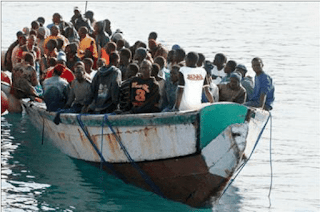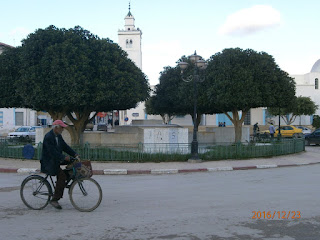The Mediterranean Illegal Immigration: a Curse or a Blessing?
Photo credits: research gate
Written by Amira Masrour
Bridging the Mediterranean has always been the dream of many young people from the African continent and the Middle East. The reasons behind such dream are different yet not all of the African and MENA people are able to cross the big sea which pushes many of them to fulfill their dream illegally.
Reaching the northern bank and living in Europe or the so called “the new world” is a divine blessing for those young people. However, such phenomenon has always been regarded as a social problem hindering the security and the economy of the European authorities.
Clandestine immigration, known as Harka حرقةamong North African people, is an illegal movement from origin places to host countries. It is a movement from sub-Saharan, North African countries, Syria and even Turkey to targeted places like Italy, Spain, Greece, and France and so on.
It touches youth of the slums as well as the university educated middle class people. So, such phenomenon doesn’t concern only poor people.
It is after the enforcement of Europe visa restrictions in 1991 that paperless migrants began to cross the Mediterranean and right after 2011 revolution that the number of illegal migrants has become alarming. According to the Tunisian Forum for Economic and Social Rights (FTDES), the number of these migrants is increasing year after year. In fact; in 2017, 15000 immigrated, 6151 succeeded to reach Italy and about the half failed to do so. A year later, a number of 3000 was registered during the first three months which is 10 times more than the precedent year.
The same case is in Morocco. By 2002, hundred thousand were attempting to cross the water each year. These statistics prove that illegal immigration is no longer a social phenomenon but a new wave of culture.
Mouadh Ben Nsir, sociologist, said to a Tunisian electronic newspaper: “what we are witnessing nowadays is no longer a social phenomenon, yet it becomes a matter of a new youth culture.”
Especially after the revolution, crossing the sea illegally has become a pride and even a sign of virility among young people. Most of the African youth start to dream of reaching Europe right from a very young a ge. You can hear the word Harka everywhere in cafés, video clips (rap music), among family members. It becomes a refuge and a portal to a new life and hope.
Such culture is known as Frerism which is a newly born ideology in Tunisia that generally incorporates implicitly class discrimination. It refers to young people who look similar in their ways of wearing, thinking, and haircut and so on. Those who have relatively succeeded to fulfill their dreams tend to name people who believe in the culture of “Harka” frères.
Photo credits:
The reasons behind the big crossing are the following: one of the most eyes catching cause is economic. They migrate because of poverty and unemployment in order to improve their financial situation. Another reason is the images of the heavenly Europe that are spread throughout TV channels.
Restricted sexual orientation rights have recently become one of the reasons behind the illegal immigration. Especially in countries whose religion is Islam, it is strictly forbidden to show one’s sexual orientation as to be a bisexual or a homosexual. Gender identity is still not a question in many countries which pushes those people to seek more freedom elsewhere.
When such kind of immigration is a blessing for some people; it is a curse for others. The irregular immigration has caused economic, social and political crisis. Fighting against this phenomenon consumes a lot of financial resources to European authorities. Social fear has emerged because of high rates of crime and delinquency.
Dealing with irregular immigration has remained a deadlock as it is almost impossible to determine who is victim and who is right. For this reason, it is the responsibility of the civil society organizations to reflect on this dilemma to help both migrants and European authorities.




Comments
Post a Comment